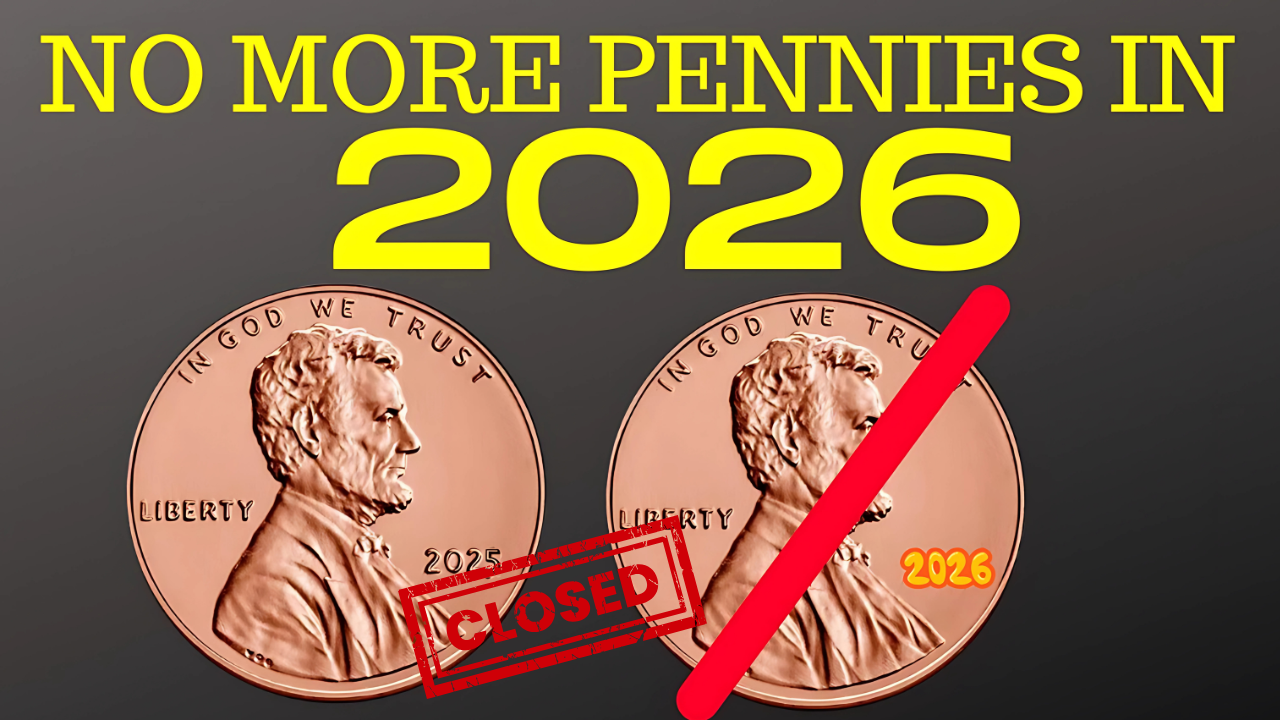The US Treasury Department has officially announced the end of penny production, with the last batch expected to run out in early 2026. This historic move has left many Americans wondering what to do with their stockpiles of one-cent coins. Here’s a comprehensive guide to navigating this transition, maximizing the value of your pennies, and understanding the implications for your finances.
Why Is the US Discontinuing the Penny?
Rising Costs Outweigh Value
The primary reason for discontinuing the penny is the rising cost of production. According to the US Mint’s 2024 annual report, it costs about 3.7 cents to manufacture a single penny, making the coin more expensive to produce than its face value. The Treasury Department projects annual savings of $56 million by halting penny production.
Material Price Increases
Pennies are mostly made of zinc with a copper overlay. The cost of zinc has more than doubled since 2000, further increasing production expenses.
Shift Toward a Cashless Economy
The growing trend of digital payments has reduced the demand for physical coins. As of 2022, about 41% of Americans reported not using cash for purchases in a typical week.
What Happens to Pennies After 2026?
Legal Tender Status
Pennies will remain legal tender even after production ceases. You can still use them for transactions, deposit them at banks, or exchange them at coin-counting machines7.
Rounding Practices
With fewer pennies in circulation, businesses will round cash transactions to the nearest five cents. This practice, already common in countries that phased out their lowest-denomination coins, will become standard in the US
What Should You Do With Your Pennies?
1. Sort and Identify Valuable Pennies
-
Look for Collectibles: Pennies minted before 1982 contain 95% copper and may be worth more than face value to collectors or scrap metal buyers7.
-
Rare Dates: Check for rare or misprinted pennies, such as those from 1909, 1943, or with unique mint marks, which can fetch higher prices among collectors7.
2. Exchange at Banks or Coin Machines
-
Deposit or Exchange: Most banks and coin-counting machines (like Coinstar) will accept pennies. Consider rolling your coins for easier deposit7.
-
Charitable Donations: Many charities accept coin donations, making this a practical way to contribute your spare change7.
3. Spend Them
-
Everyday Purchases: Use your pennies for small purchases or to pay exact amounts at stores that still accept them.
-
Local Businesses: Some small businesses may continue to accept pennies for a period after discontinuation.
4. Save for the Future
-
Potential Value Increase: As pennies become scarce, their value as collectibles may rise, especially for older or rare coins7.
-
Educational Purposes: Pennies can be used for teaching children about money, math, and history.
| Option | Description | How to Use/Participate | Potential Benefit |
|---|---|---|---|
| Coin Exchange at Banks | Banks accept rolled pennies for deposit or exchange. | Roll coins and bring to your bank | Easy conversion to cash7 |
| Coin Counting Machines | Machines like Coinstar accept pennies and give cash or store credit. | Pour coins into machine, follow prompts | Convenient, quick7 |
| Charitable Donation | Many charities accept coins for fundraising. | Donate at collection points | Supports good causes7 |
| Collecting/Resale | Older or rare pennies may appreciate in value. | Sort and sell to collectors/dealers | Potential for profit7 |
Other Countries’ Experiences
Many countries have discontinued their lowest-denomination coins for similar reasons:
-
Canada: Phased out the penny in 2012, adopting rounding rules for cash transactions.
-
Australia & New Zealand: Ended 1- and 2-cent coins in the early 1990s.
These transitions have generally been smooth, with minimal impact on consumers and businesses.
Impact on Businesses and Consumers
For Businesses
-
Point-of-Sale Adjustments: Retailers will need to update systems to round cash transactions.
-
Pricing Strategies: Some may adjust prices to avoid frequent rounding.
For Consumers
-
Cash Transactions: Expect rounding up or down to the nearest five cents.
-
Digital Payments: No rounding needed for electronic transactions.
FAQs
1. Will my pennies become worthless after 2026?
No, pennies will remain legal tender and can still be used or exchanged at banks7.
2. Should I keep or sell my old pennies?
It’s wise to check for rare or pre-1982 pennies, which may have higher value; otherwise, you can spend or exchange them7.
3. How will cash transactions work without pennies?
Transactions will be rounded to the nearest five cents for cash payments, while digital payments remain unchanged.
With the US set to discontinue the penny in 2026, now is the time to sort, spend, exchange, or save your one-cent coins. Whether you’re a collector, a donor, or simply looking to declutter, there are practical options to make the most of your pennies before they become a part of American history.
Read More:- Big Changes Ahead: Pennies Are Ending—How to Handle Your Spare Coins

